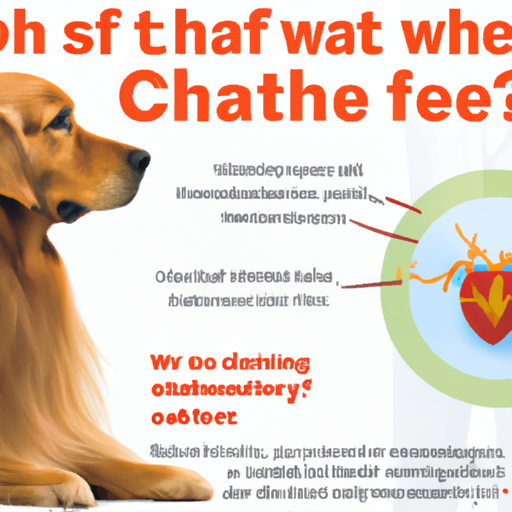Understanding Canine Heart Failure
CHF, or Congestive Heart Failure, is a condition that can affect your beloved pet. It’s a progressive condition where the heart’s ability to pump blood efficiently weakens over time. This often leads to an accumulation of fluid in different parts of your dog’s body.
The signs can be subtle, but once you know what to look for, you’ll be better prepared to spot the early warning signs. These can include:
- Persistent coughing: This is often worse at night or first thing in the morning.
- Difficulty breathing: Breathing may become rapid or labored.
- Decreased activity: Your dog may be less eager to play or go for walks.
- Swollen abdomen: This is caused by fluid build-up, and is often a late-stage symptom.
Causes and Risk Factors for CHF in Dogs
Like humans, dogs can suffer from a variety of heart conditions. CHF in dogs is most commonly caused by one of two conditions:
- Dilated Cardiomyopathy (DCM): This is where the heart becomes enlarged and can’t pump blood effectively.
- Degenerative Mitral Valve Disease (DMVD): This is where the heart’s mitral valve weakens and leaks, preventing blood from flowing efficiently.
Certain breeds are more prone to these conditions, including Doberman Pinschers, Boxers, and small breeds such as Dachshunds and Cavalier King Charles Spaniels.
Diagnosing CHF in Your Dog
The diagnosis of CHF in dogs is usually based on a combination of physical examination findings, symptoms, and diagnostic tests. Your vet may recommend the following tests:
- Blood and urine tests
- Chest X-rays
- Electrocardiogram (ECG)
- Echocardiogram (ultrasound of the heart)
| Diagnostic Test | Purpose |
|---|---|
| Blood and urine tests | To assess overall health and detect any concurrent diseases |
| Chest X-ray | To visualize the heart and lungs |
| ECG | To measure the heart’s electrical activity |
| Echocardiogram | To visualize the heart in motion and assess its function |
Treatment Options for CHF in Dogs
Unfortunately, CHF is a progressive disease that can’t be cured. However, with the right treatment, the progression of the disease can be slowed down, and your dog’s quality of life can be improved. Treatment options may include:
- Medication: There are various medications available that can help manage CHF symptoms and slow disease progression.
- Dietary changes: A low-sodium diet can help reduce fluid build-up.
- Weight management: Keeping your dog at a healthy weight can reduce strain on the heart.
Preventing CHF in Dogs
While it’s not always possible to prevent CHF, there are some steps you can take to help maintain your dog’s heart health. Regular exercise, a balanced diet, and regular vet check-ups can all contribute to a healthy heart. Furthermore, if your dog belongs to a breed that’s at high risk for heart disease, early screening may be beneficial.
Frequently Asked Questions
What is CHF in dogs?
CHF, or Congestive Heart Failure, is a condition where a dog’s heart can’t pump blood efficiently, leading to fluid build-up in the body.
What are the symptoms of CHF in dogs?
Symptoms can include persistent coughing, difficulty breathing, decreased activity, and a swollen abdomen.
How is CHF diagnosed in dogs?
Diagnosis is usually based on a combination of physical examination findings, symptoms, and diagnostic tests such as blood tests, X-rays, and an ECG.
Can CHF in dogs be cured?
While CHF can’t be cured, the progression of the disease can be slowed and symptoms managed with appropriate treatment.
How can I prevent CHF in my dog?
Regular exercise, a balanced diet, and regular vet check-ups can help maintain heart health. Early screening may also be beneficial for high-risk breeds.



